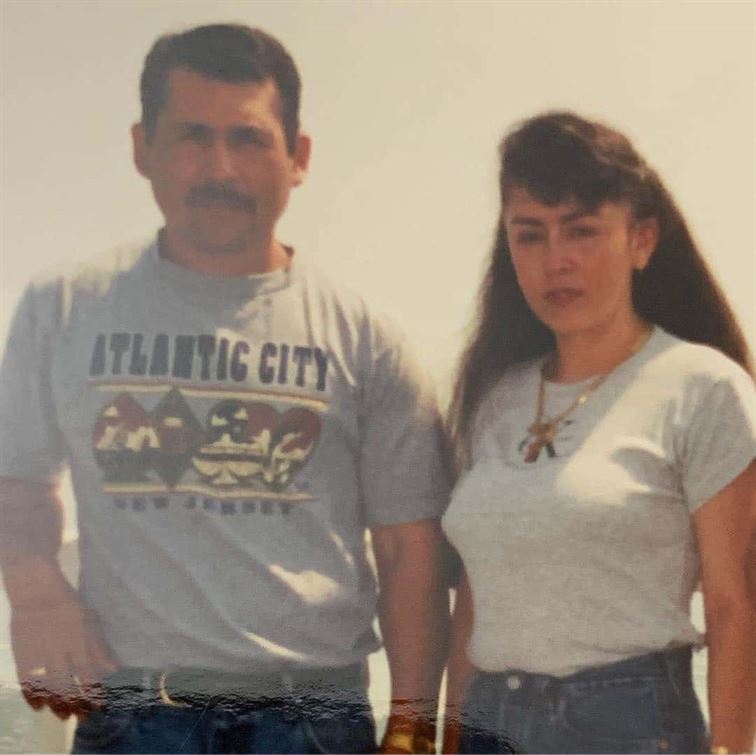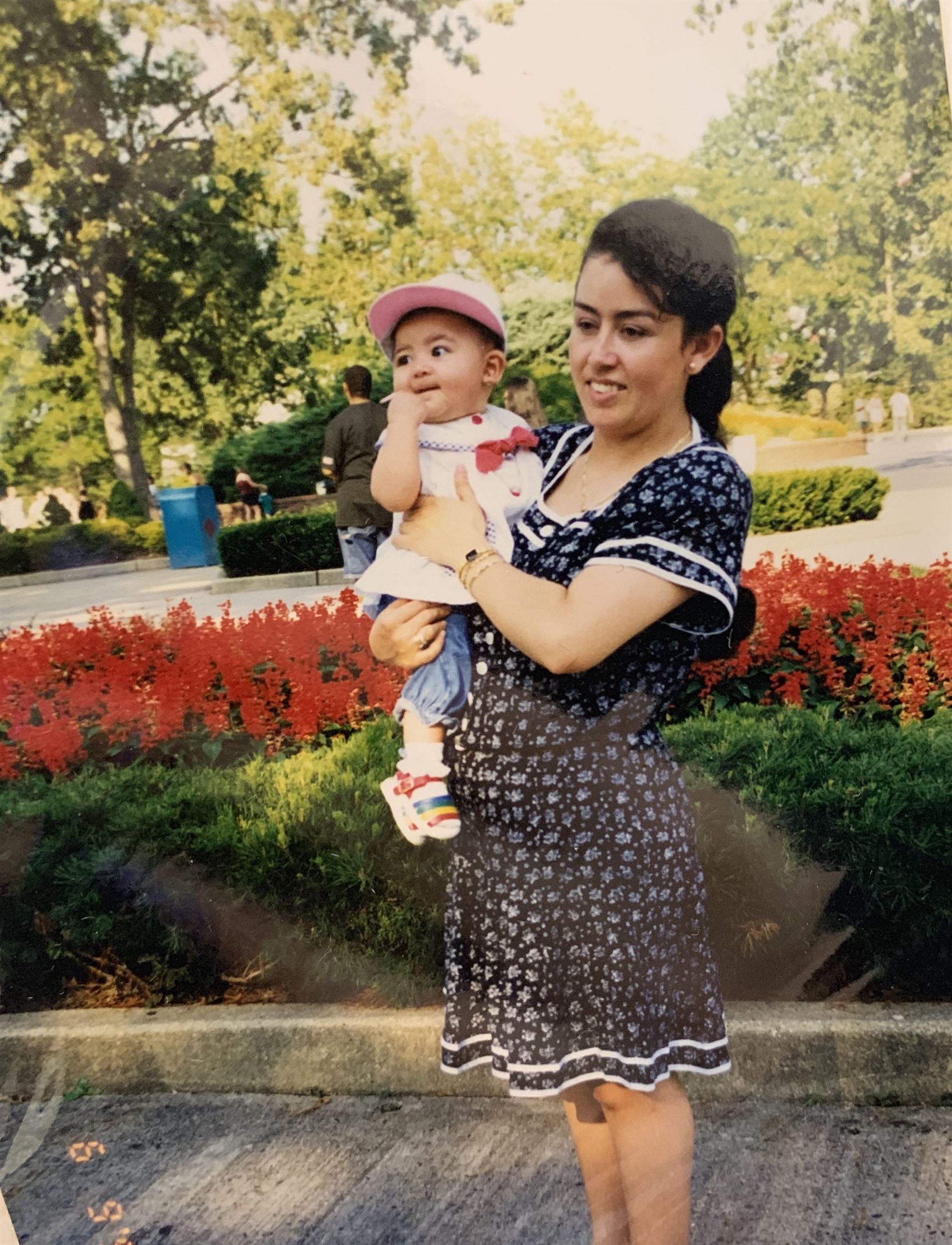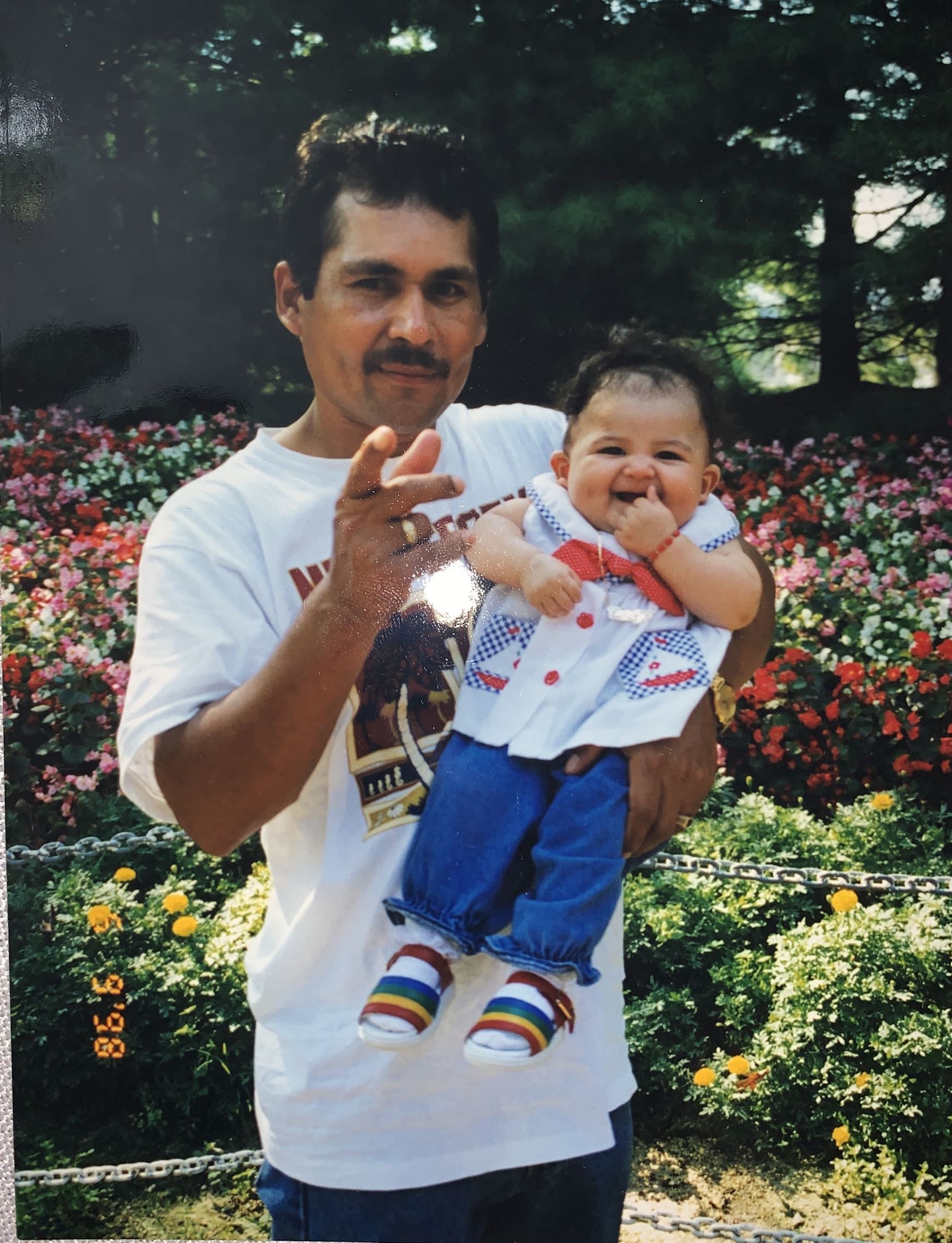The United States of America thrives on its success from the many backs of immigrants who were forced into migration and the millions of people who wanted to pursue the American dream in hopes for a better future for their forthcoming generations.
My parents, both from El Salvador, knew nothing about the American dream when they were younger, but they were inevitably obliged to pursue it in order to survive.
Between 1980 and 1992, El Salvador was in a devastating civil war that robbed millions of their safety, broke apart cities and financially destroyed the economy of the entire nation.

This photo was taken in 2000 of Benjamin Henriquez (left) and Sonia Henriquez (right).
Photo courtesy of Carly Henriquez
My father, Benjamin Henriquez, at the age of 24, left the country after reasoning there was no employment that could sustain him and his 11 siblings. Since he was one of the oldest siblings, it was his responsibility to take over the position as the head of the family.
However, at the age of 18, he lost his neighborhood, his house and his miscellaneous items due to the mass raids from the soldiers. During this time he needed to take his family on a 3-hour quest, barefoot into a safe city, spending the little amount of money he saved up only to survive a couple of nights.
https://www.instagram.com/p/Bv0cRmKDttm/
The civil war truly left a scaring mark to the civilians of the country. My mother, Sonia Henriquez, grew up having to cautiously walk to school because there were hidden land mines everywhere placed by the soldiers.
She grew up in extreme poverty and primarily in the countryside with several of her farm animals. My mother was always an outcast by society and treated poorly because the attire she wore was always borrowed clothing, and she only had one pair of shoes for the entire school year.
When growing up she, too, realized there was no sustainable future for her since her family was unable to afford to take her to high school, which devastated her. At 21 years old, she decided to migrate over into the U.S. in order to find better living and working conditions to maintain herself.

Sonia Henriquez at 23 years old holds her first-born daughter at Six Flags.
Photo courtesy of Carly Henriquez
Typically when people think of immigrants, society associates them with either trespassers or illegals trying to take jobs from hardworking Americans, or people trying to freeload on the benefits the system has to offer.
Neither of my parents were ever handed a job with any health benefits, salary compensation or any financial stability. They created their own work opportunities and through their own means, they were able to prosper.
I am a proud child of two hardworking immigrants who were placed at an awful disadvantage in life, but they relentlessly pushed for a better outcome for themselves and now they continue to push for a better outcome for their children. My parents are the reason why I constantly strive to do my best academically because they were never given the opportunity to do so themselves.

Benjamin Henriquez tries to get his daughter to look at the camera.
Photo courtesy of Carly Henriquez
As a Latina U.S.-born citizen, I will represent my heritage and continue to proudly embrace my roots through my academic work as well. There is a lack of representation of Latin minorities in the journalism and communication-related field, according to an article written by The Atlantic called, “Where Are All the Minority Journalists?”
There continue to be several hundreds of thousands of other Latino stories that resemble my parents’ struggles that get swept under the rug both in the media and in society. However, telling my parent’s story can inform a larger audience that they are people who only want to survive.
#MyImmigrantStoryIs although I’m not an immigrant myself, both of my parents are. I’ve seen them accomplish the American dream with a lot of hard work and dedication. It definitely wasn’t easy, but it sure was worth it. #msucms19 https://t.co/AWWrLYW9lX
— Valentina Lombardo (@val___lombardo) April 3, 2019



